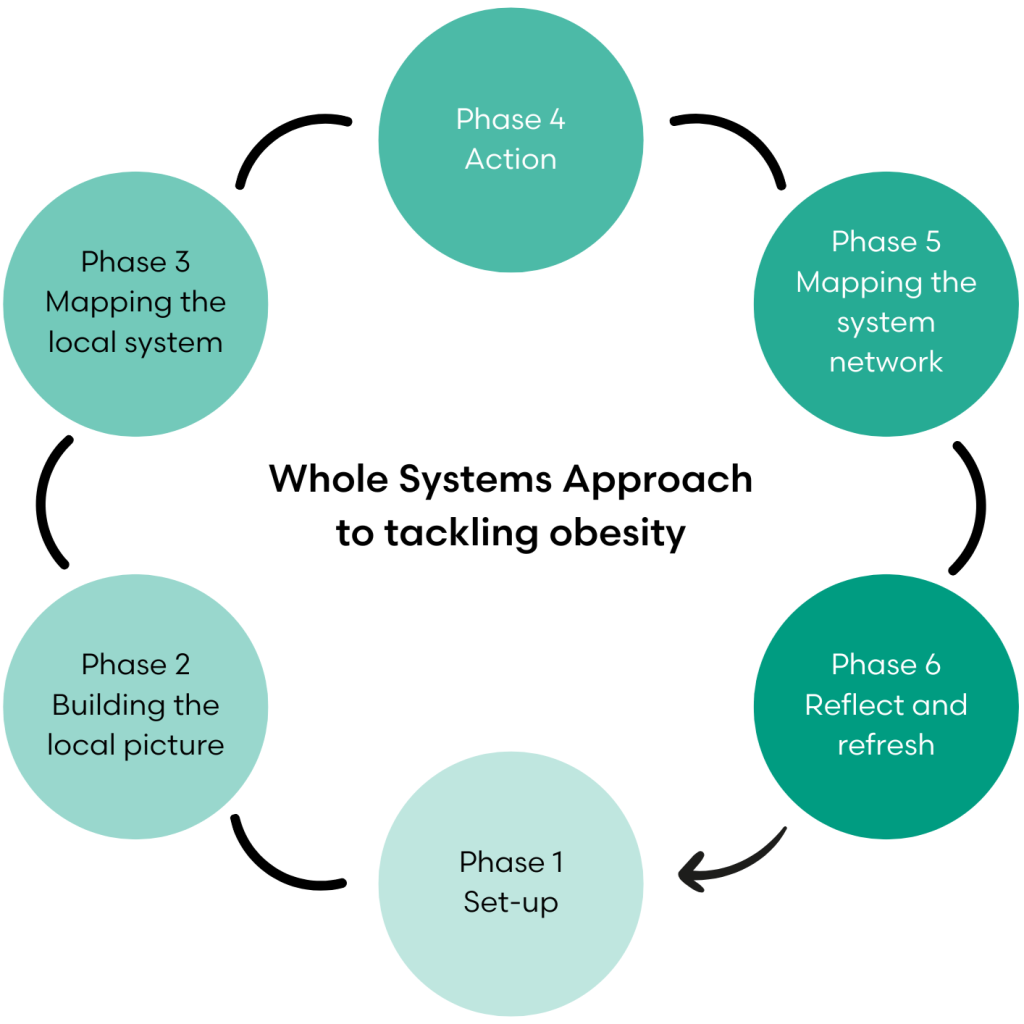Whole Systems Approach



to Obesity
- Realistic
- Recognised
- Results-Driven
Our training, education and evaluation enables YOUR organisation to move away from traditional silo working models to systems built upon co-produced and collaborative goals. this enhances relationships, trust, community and organisational capacity.
An Acknowledged Practice
The whole systems approach itself was a collaboration between PHE, the Local Government Association, the Association of Directors of Public Health, and Leeds Beckett University, with Morelife’s founder and CEO, Professor Paul Gately as lead researcher for the entire project.
From 2015 they collaborated extensively to revolutionise how we tackle the complex problem of obesity to create the Whole Systems Approach. This approach incorporates local stakeholders in the decision-making process and allows for flexibility to provide more bespoke services for communities.
Why use the Whole
Systems Approach?
THIS transformative coordinated action is a proven method for SUCCESS across a broad range of disciplines and stakeholders, operating across all levels of governance and policy throughout the life course.
Many local, national and international public health teams are now implementing a systems approach (which may also be known as a Whole Systems Approach or a systems-based approach) to create healthier [weight] environments in their local area.
Why Us?
Knowledge Weavers
- We engage individuals with a common purpose.
- We build trust among members.
- We gather and share tacit knowledge.
Collaborative Learners
- We develop shared practice.
- We shape collective intelligence.
- We transform implicitly held knowledge and preconceptions.
Systems of
Influence Instigators
- We ensure commercial viability and an effective systems-based solution.

Professor Paul Gately on the
Whole Systems Approach to Obesity
What does this new research mean for Public Health policies on obesity?
Across England, the majority of adults have overweight or obesity, with 1 in 3 children following the same path by the time they leave primary school. In fact, obesity is one of the most pervasive and expensive public health issues of our time, with an estimated cost to wider society of £98 billion per year.
However, it is also an issue that public health teams have struggled to address on a local level. Obesity is a complex issue with various contributing factors,
not least the increasingly obesogenic environment in which we live. Over the past twenty years of working in this field, I’ve found that many approaches have focused on finding single solutions to single problems, with organisations working independently and in isolation. While the singular solutions that we often hear about in the media, like the Sugar Tax, may have a role to play, they simply lack the scale to tackle the whole problem effectively.
How can organisations use Whole Systems Approaches?
From 2015-2019, Morelife and the team at LBU developed the Whole Systems Approach framework and the accompanying resources which will enable local authorities to connect the various dots. In time, we want to see all agencies transition to a systems way of working to better address issues like obesity, drawing on local assets to make the health of local people a priority for everyone.
Our flagship OneLife Suffolk service was just one example of how local authorities worked with Morelife and LBU to embed an integrated, whole systems approach to obesity– the benefits of which the residents of Suffolk continue to reap.
Starting in 2016, Suffolk County Council worked in partnership with Morelife and key local stakeholders to support people to improve their health, with over 35,000 residents
accessed a health intervention during the first two years of the service. At the same time, we worked with workplaces and other organisations in Suffolk to help influence the environmental drivers of poor health.
With LBU and Morelife experts already working closely with colleagues in Amsterdam on similar projects, the potential applications of this research aren’t just limited to the UK. We’ve seen interest peak across the globe, and we believe this is a real first step to tackling the global obesity crisis.
Learn more on the Whole Systems Approach from:

